Exploring Attu’s Underwater Battlefield and Offshore Environment
Meet the Explorers
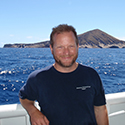
Jason Raupp, Ph.D.
Principal Investigator, East Carolina University
Jason Raupp serves as principal investigator for the project. He is an assistant professor of maritime studies at East Carolina University and a registered professional archaeologist. Specializing in maritime archaeology and maritime history, he holds a bachelor’s degree in anthropology from Northwestern State University, a master’s degree in history from the University of West Florida, and a doctorate in archaeology from Flinders University (South Australia). Over the past twenty years he has been involved with maritime and terrestrial archaeological research in the United States, Africa, Australia, Asia, Europe, the Caribbean, and the Pacific region. His research interests include historical and maritime archaeology, culture contact, historic fisheries, battlefield studies, and public archaeology. He has co-authored edited books, chapters in edited volumes, papers in conference proceedings, book reviews, and professional reports, and has published numerous articles which have appeared in peer-reviewed journals including International Journal of Nautical Archaeology, Journal of Maritime Archaeology, Bulletin of the Australasian Institute for Maritime Archaeology, Florida Historical Quarterly, and North Carolina Historical Review.
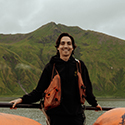
Dominic Bush, Ph.D.
Co-principal Investigator, East Carolina University
Dominic Bush serves as the project’s co-principal investigator, responsible for survey design and coordinating community outreach efforts. In 2024, he earned his doctorate in coastal resource management from East Carolina University, with a dissertation focused on the microbial corrosion of submerged aircraft wrecks. Prior to this, he completed his master’s degree at Washington State University and bachelor’s degree at the University of Notre Dame, both in anthropology. A registered member of the Chugach Corporation, Dominic first became interested in Attu through his own Native Alaskan heritage (Sugpiaq). In 2020, he used the COVID-19 semester to compose a term paper on a predictive archaeological model for the Battle of Attu, which serves as the foundation for this project. Since then, he has conducted over four years of archival research related to Attu’s history, presenting the results at several professional conferences. Beyond the Aleutians, Dominic has led archaeological projects in his home state of Hawaii, with a focus on submerged World War II sites. Other underwater fieldwork experiences include searches in Saipan for personnel missing in action (MIA), Bronze Age shipwreck excavations in Turkey, dive surveys in Ecuador, and recording the Aircraft Graveyard at Roi-Namur through photogrammetry.
Caroline Funk, Ph.D.
Co-principal Investigator, University at Buffalo
Caroline Funk is research faculty at the University at Buffalo, a research affiliate of the archaeology division of the Museum of the North, and a research associate of the Museum of the Aleutians. She has researched human and environmental intersections on the cold-water coastlines of three continents for more than twenty years. She currently focuses on the western Aleutian Islands, the heritage land and seascapes of the Unangax̂ people. She has extensive experience in remote fieldwork on Attu, community partnerships, and collaborative research partnerships. She has published extensively on the human history of the Aleutian Islands, including the World War II era. Caroline serves as the project’s co-principal investigator, assisting with aspects of the project related to indigenous history and coordinating all Alaska outreach efforts.
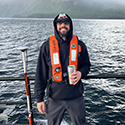
Alexander Bolvin
Marine Surveyor, ThayerMahan, Inc.
Alexander Bolvin graduated from the University of Rhode Island College of Ocean Engineering with a focus in underwater acoustics. He has been performing hydrography and engineering work in the marine industry since 2018. He is an avid musician, surfer, and hiker. As a lifelong Rhode Island resident, his interest in the marine world has been an enduring passion and he hopes that his work can help to impact mariners and future generations in a positive way.
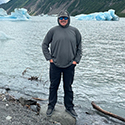
Alex Campbell
Marine Surveyor, ThayerMahan, Inc.
Alex Campbell is a mariner and electronics technician who has worked for ThayerMahan, Inc. since 2019. Over the past five years he has assisted in designing, testing, and operating a wide variety of sea-going sensors, systems, and vehicles, but his primary role has been in hydrography. Prior to joining the team at ThayerMahan, he served in the U.S. Navy aboard the Virginia-class submarine USS Colorado (SSN-788) as a navigation electronics technician. His family roots are in New England, where his childhood began, but most of his formative years were spent in Houston, Texas. He now happily resides in Connecticut with his wife and three dogs.

Ryo Christopher Fukaya
Photographer, World Scan Project
Ryo Christopher Fukaya was born in Texas and currently lives in Tokyo, Japan, though he currently spends about a quarter of the year overseas. He established a video production company while attending university and has since been active in a wide range of mediums including YouTube production, wedding photography, and advertising photography. In addition to taking photos and videos on the ground, he also takes underwater photos and aerial photos using a drone.
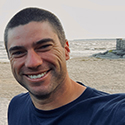
Phil Hartmeyer
Maritime Archaeologist, NOAA Ocean Exploration
Phil Hartmeyer leads the marine archaeology program at NOAA Ocean Exploration where he identifies, engages, leads, and supports underwater cultural heritage community priorities, research, and federal preservation efforts. He joins the project as an archaeologist, data manager, and NOAA Ocean Exploration point of contact. He has 13 years of marine science and archaeology field experience in marine remote sensing, archaeological site documentation, and resource protection and management spaces. He holds a bachelor’s degree in archaeology from Saint Mary's College of California, a master’s degree in maritime studies from East Carolina University, and is a registered professional archaeologist.
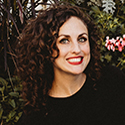
Bobbi Hornbeck, Ph.D.
Assistant Professor, Stockton University
Bobbi Hornbeck is a native of Cape May County, New Jersey, with a passion for exploring the intersections of historical preservation, identity, and landscape use. Currently, she is an assistant professor of archaeology at Stockton University. She also serves as the vice president of the Cape May County Historical & Genealogical Society (CMCHGS), managing stewardship of their New Jersey State and National Historic Register listed Cresse-Holmes House. As a landscape archaeologist working in the Aleutian Islands, Alaska, she specializes in the dynamic ways humans express their membership within stratified identity groups by building entangled relationships with each other and the landscape. As an officer of the board for the CMCHGS, Bobbi specializes in the inclusive preservation of local histories and public accessibility. Bobbi has integrated this cross-disciplinary experience into the development of high-impact learning opportunities for undergraduate students at Stockton University in laboratory, field, and archival settings. Through her programming, students learn about the importance of applying ethical standards and decolonizing frameworks to cultural resource management, the promotion of inclusive histories, and what studying the life-history of landscapes can tell us about the relationships between diverse cultural identities.
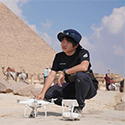
Yasumasa Ichikawa
Chief Technology Officer, World Scan Project
Yasumasa Ichikawa is the chief technology officer of the World Scan Project and a joint researcher at Kyushu University and Nagoya University. Yasumasa engages with robotics and sensor technology in various fields. Yasumasa serves as the project’s remotely operated vehicle pilot. He studied architecture, design computer graphics, and visual effects at an art university in Kyoto. Yasumasa participated in the world's first 3D survey of the pyramids of Giza, and later founded the World Scan Project, undertaking 3D scanning of ruins across Egypt and throughout the world.
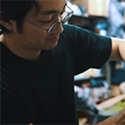
Masaya Katagiri
Remote Sensing Specialist, World Scan Project
Masaya Katagiri is an engineer specializing in the development and maintenance of advanced technological systems. He majored in mechanical engineering, which laid a strong foundation for his career. After graduation, he became a co-pilot for the Japan Agency for Marine-Earth Science and Technology (JAMSTEC)'s human occupied submersible vehicle, Shinkai 6500. Over the course of approximately 30 dives, he gained extensive experience in piloting the submersible, operating its manipulators, and serving as a navigator on the mothership. Following his tenure as a co-pilot, he transitioned to a role focused on land-based adjustments. This included supporting the modification of the Shinkai 6500 and the operation of remotely operated vehicles. He also contributed to the development of equipment for deep-sea deployment, such as long-term underwater acoustic recorders and seismometers capable of optical and wireless communication. Currently, he is a part of the World Scan Project, where he is involved in the development of a new type of magnetometer.
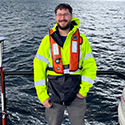
Connor Link
Marine Surveyor, ThayerMahan, Inc.
Connor serves as a hydrographer and systems operator with ThayerMahan’s seabed systems group. Over the past five years, he has planned and conducted at-sea survey operations in support of government, commercial, and offshore wind projects. Prior to his career, Connor was an undergraduate research assistant at the University Wisconsin-Milwaukee, where he graduated with a degree in geology/geophysics. Originally from Algonquin, Illinois, Connor enjoys trips to the city, but prefers to be immersed in nature, hiking in national parks, fishing, and snowmobiling.
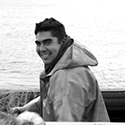
Sean Mack
Cultural Liaison
Sean Mack is an Unangan (Aleut) archaeologist from the village of King Cove, an amazing place on the lower Alaska peninsula. He also spent about 15 years in the Seattle area, graduating from the University of Washington with a double major in history and anthropology. After graduating, he attended Idaho State University, receiving a master’s degree in anthropology and a post-baccalaureate certificate in geotechnologies. He also has a master's in geographic information systems from Penn State. He has been doing archaeology in Alaska for almost 20 years. In that time, he has been fortunate enough to visit some beautiful, remote locations, and to meet many interesting people. His hobbies include photography, scuba diving, and traveling with his two children.
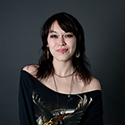
Wolfgang Tutiakoff
Cultural Liaison
Wolfgang Tutiakoff is Unangax, Yup’ik and Dena’ina, and originally from Anchorage, Alaska. A sophomore at the Institute of American Indian Arts, Wolfgang is a studio arts major. She is particularly interested in this project and the opportunity to observe and learn from researchers at East Carolina University due to her deep roots in the islands, innate appreciation for nature, and curiosity regarding yet-to-be documented history. Through observation and documentation, she hopes to accurately and positively portray the important roles of each of the research crew members and the history found while out at sea.
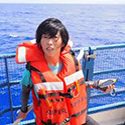
Masami Sannoh
Associate Professor, Kyushu University
Masami Sannoh has over 20 years of surveying experience and is a member of the Worldscan geographical information and analysis laboratory at Kyushu University in Japan. Here, she specializes in multibeam bathymetric surveys and topographic surveys through diving.
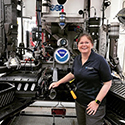
Rhian Waller, Ph.D.
Deep-sea Ecologist, University of Gothenburg
Rhian Waller is a deep-sea ecologist who works at the University of Gothenburg in Sweden as a senior lecturer/associate professor of marine sciences. She primarily works with deep-sea and cold-water corals and sponges. Her research group examines reproduction and development in extreme environments, as well as biogeography of deep ecosystem-building communities. Her group’s overarching goal is to examine what drives reproduction in deep and cold waters and how these extreme environments shape populations now, in the past, and into the future.
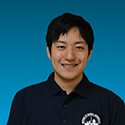
Kotaro Yamafune
President, A.P.P.A.R.A.T.U.S., LLC
Kotaro Yamafune received his bachelor’s degree in history from Hosei University in Tokyo before entering the Nautical Archaeology Program in the anthropology department at Texas A&M, where he received his master’s degree. He continued his studies in Texas A&M’s Nautical Archaeology Program, earning his doctorate in 2016. His research interests include shipbuilding in medieval Europe and the European “age of discovery,” and ship reconstruction, both manually and through the use of digital tools such as 3D modeling software. He also focuses on photogrammetric recording of submerged cultural heritage, including shipwreck sites. In September 2016, he founded A.P.P.A.R.A.T.U.S., LLC, and became its president. Currently, he is contributing to both terrestrial and underwater archaeological projects and providing workshops in many countries using his photogrammetry skills.